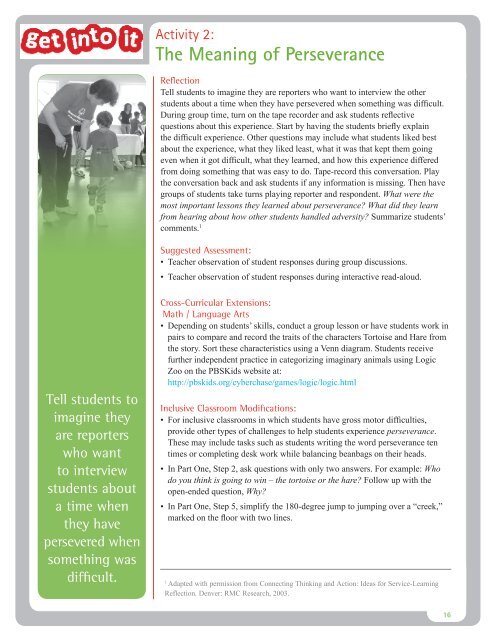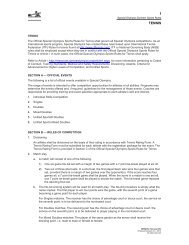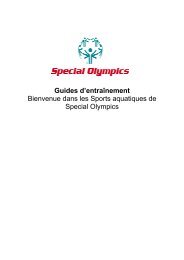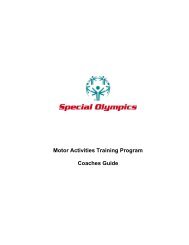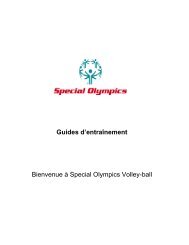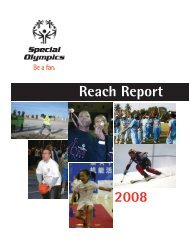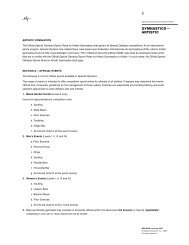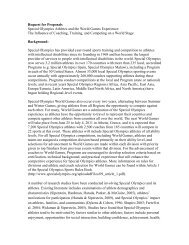Lessons - Special Olympics
Lessons - Special Olympics
Lessons - Special Olympics
You also want an ePaper? Increase the reach of your titles
YUMPU automatically turns print PDFs into web optimized ePapers that Google loves.
Tell students to<br />
imagine they<br />
are reporters<br />
who want<br />
to interview<br />
students about<br />
a time when<br />
they have<br />
persevered when<br />
something was<br />
difficult.<br />
Activity 2:<br />
the Meaning of Perseverance<br />
Reflection<br />
Tell students to imagine they are reporters who want to interview the other<br />
students about a time when they have persevered when something was difficult.<br />
During group time, turn on the tape recorder and ask students reflective<br />
questions about this experience. Start by having the students briefly explain<br />
the difficult experience. Other questions may include what students liked best<br />
about the experience, what they liked least, what it was that kept them going<br />
even when it got difficult, what they learned, and how this experience differed<br />
from doing something that was easy to do. Tape-record this conversation. Play<br />
the conversation back and ask students if any information is missing. Then have<br />
groups of students take turns playing reporter and respondent. What were the<br />
most important lessons they learned about perseverance? What did they learn<br />
from hearing about how other students handled adversity? Summarize students’<br />
comments. 1<br />
Suggested Assessment:<br />
• Teacher observation of student responses during group discussions.<br />
• Teacher observation of student responses during interactive read-aloud.<br />
Cross-Curricular Extensions:<br />
Math / Language Arts<br />
• Depending on students’ skills, conduct a group lesson or have students work in<br />
pairs to compare and record the traits of the characters Tortoise and Hare from<br />
the story. Sort these characteristics using a Venn diagram. Students receive<br />
further independent practice in categorizing imaginary animals using Logic<br />
Zoo on the PBSKids website at:<br />
http://pbskids.org/cyberchase/games/logic/logic.html<br />
Inclusive Classroom Modifications:<br />
• For inclusive classrooms in which students have gross motor difficulties,<br />
provide other types of challenges to help students experience perseverance.<br />
These may include tasks such as students writing the word perseverance ten<br />
times or completing desk work while balancing beanbags on their heads.<br />
• In Part One, Step 2, ask questions with only two answers. For example: Who<br />
do you think is going to win – the tortoise or the hare? Follow up with the<br />
open-ended question, Why?<br />
• In Part One, Step 5, simplify the 180-degree jump to jumping over a “creek,”<br />
marked on the floor with two lines.<br />
1 Adapted with permission from Connecting Thinking and Action: Ideas for Service-Learning<br />
Reflection. Denver: RMC Research, 2003.<br />
16


